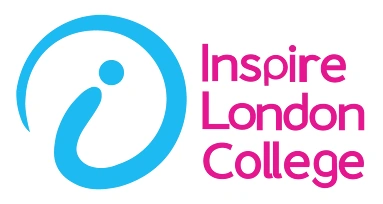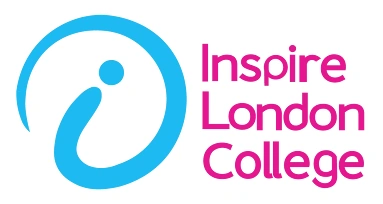Going to educational institutes, studying textbooks, and attending lectures are important steps in learning. In fact, they set the foundation for your theoretical knowledge. However, knowledge without practice or skills isn’t effective. Because concepts without practical application leave a skill gap that may affect your professional life. According to Skill Gap Statistics 2023, 66% of the UK’s large businesses are struggling to recruit employees with the required skills. No matter if you are a student or a young professional, job success becomes a real struggle without practical skills. So, in this article, let’s explore why practical skills are important, and how you can improve them for your successful career.
What are Practical Skills?
Before moving on to the importance of practical skills, let’s first understand what practical skills are.Practical skills refer to expertise that one acquires to perform their duties or tasks efficiently. Or you can say, these are the expertise gained through the practical application of your theoretical knowledge in real-world scenarios. These include your interpersonal, physical, creative hard or soft skills. Acquiring these skills allows you to do your tasks confidently, solve problems, and adapt to upcoming industry challenges in various sectors.
Practical Learning vs. Theoretical Knowledge
You can gain information either by learning or hands-on experience. Theoretical knowledge is what you learn through theories or concepts in the classroom. This means you learn things without adopting a practical approach. Not only that, theoretical learning also tells you why one technique is successful and others fail. Moreover, this knowledge offers you a deeper understanding of concepts in the context of understanding the reasons behind them.
On the other hand, practical learning revolves around hands-on experience. In other words, it teaches you how things work in the real world. Through practical applications, you interestingly learn the skills and facts with personal experience. The best part? This knowledge and expertise remain with you throughout your life. Although, both kinds of learning are equally important in every industry. So, one type of education alone can’t guarantee your career success.
Why Practical Skills Are Important?
Personal experiences enhance your capabilities to face real-world challenges. Besides education, practical skills learnt through personal experiences are crucial for you to keep up with today’s evolving job market. To excel in both your personal and professional life, consider the following reasons why you should gain practical skills:
Bridge the Skill Gap
Many educational institutes mainly focus on concept learning and textbooks. But you know what, this focus on theoretical learning leaves a gap between what you learn in the class setting and what the real-world demands. To your surprise, research from the Industry Strategy Council indicates that around 20% of the UK workforce will be underskilled for jobs by 2030. That’s why, practical skills offer you a hands-on approach and allow you to apply your concepts in real scenarios, making you valuable to potential employers.
Master Skill Set
Experiential learning is the key to mastering your skillset and getting job-ready in the competitive world. You will learn more beyond your imagination by applying your concepts to real projects. You can get insights into practical technicalities on why your method is not working. Moreover, you can find out the underlying reasons and brainstorm the solutions to solve the problems. So, practical experience allows you to master your skills with real practice.
Enhance Employability and Career Progression
As discussed earlier, employers are constantly seeking skilled professionals who can perform the job more efficiently. Along with knowledge, practical skills enable you to handle the actual challenges, work with the team efficiently, and adapt to diverse working environments. Acquiring these practical skills for a job demonstrates your abilities whether these are your hard skills like coding, or finance management, or soft skills like critical thinking or leadership. Additionally, this expertise makes you competitive, thus increasing your employability and career progression chances.
Improves Problem-solving and Adaptability
Industries are constantly evolving with innovation, rapidly emerging processes, and techniques. To keep up with the world, problem-solving and adaptability are essential practical skills to learn. This expertise enables you to immediately adapt to new challenges and come up with solutions in dynamic professional settings. No matter if you are interested in healthcare, engineering or business, practical skills and experience allow you to work in all sectors.
Increases Confidence and Independence
When you have command over your knowledge and expertise, you feel confident, right? Similarly, exposure to real work environments and challenges enhances your practical expertise. This may clear your doubts on why you should learn practical skills. These essential skills boost your confidence and allow you to work independently in every industry. Hence, you can take on any tasks without hesitation, solve problems without supervision, and manage responsibilities independently.
Meet Industry Standards and Expectations
Stepping into a professional world and still thinking why is it important to learn practical skills? Here is the answer. Every sector requires practical skills to perform your duties in a workplace smoothly. Whether it’s patient care, software management or marketing strategies, practical skills increase your abilities to meet industry standards. Moreover, this expertise enables you to meet the employer’s expectations and work requirements, thus contributing to your organisation’s success.
How Can People Learn Practical Skills?
If you are willing to learn anything, you find ways to get it done. Similarly, if you want to learn practical skills, there are different ways to practise. Here are some of the ways in which you can gain this expertise:
Internships and Apprenticeship
One of the great ways to learn practical skills is through internship and apprenticeship, whether you are still studying or preparing yourself for a job. These opportunities give you the chance to apply your theoretical knowledge and offer hands-on experience. Besides this, you get to learn from professionals, develop industry-specific skills, and experience real-world challenges.
Continuous Learning and Development
Due to the known importance of practical knowledge, continuous learning and development programs are available to gain these skills. Different online courses, workshops, an certifications can help you acquire new practical skills or hone the existing ones. This opens your path to countless employability and career advancement opportunities.
On the Job Training
To fill this skill gap, many organisations also offer on-the-job training to help you learn these crucial skills. What’s more incredible is that you will learn from professionals and get instant hands-on experience. This method allows you to improve your skills directly in a work environment, either through mentorship, workshops or project trials.
Steps to Improve Practical Skills
Developing and improving your expertise is now the need of time. If you are wondering how to improve practical skills, here are a few steps to ease your stress:
Training Courses: You can enhance your practical skills by taking a training course relevant to your field. While enrolling for the training course, consider your job role and its required skills.
Practice Communication: Another way to gain this expertise is by practising effective communication for collaboration and teamwork. This practice allows you to learn new techniques while working with different people.
Seek Constructive Feedback: By understanding the importance of practical learning, seek constructive feedback from your employers, colleagues and other professionals on your performance. This will help you Identify your weak areas and try to fill the gap for improved performance.
Conclusion
To sum up, practical skills are now more in demand than contextual knowledge. By understanding why practical skills are important and gaining the required ones, you can fill the skill gap and enhance your career prospects. With improved expertise, you can easily solve problems, adapt to the environment, increase your confidence, and meet industry standards. Also, you can learn these skills through training, internships or job training. So, take your time to enhance your expertise and become attractive to top employers.









